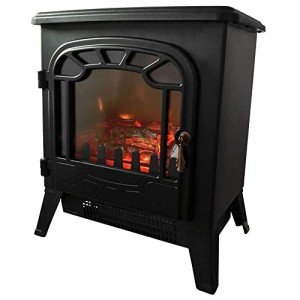DobbinsEarnestine
DobbinsEarnestine发表的博客
The Best Fireplaces: A Comprehensive Guide for Homeowners
Fireplaces have actually long been a cherished function in homes, providing both warmth and an inviting atmosphere. They can be found in different styles, sizes, and fuel types, allowing house owners to choose one that fits their individual aesthetic and heating needs. This short article explores the very best fireplaces, highlighting essential features and factors to consider to assist you make an informed choice.
Kinds of Fireplaces
Comprehending the various kinds of fireplaces is crucial in selecting the best alternative for your home. Below are the most typically used fireplaces:
Wood-Burning Fireplaces
- Advantages: Traditional appeal, natural atmosphere, and effective heating.
- Drawbacks: Requires regular maintenance, ash disposal, and is subject to local policies relating to emissions.
Gas Fireplaces

- Advantages: Convenient, clean-burning, and simple to run.
- Downsides: Requires a gas line, can be more costly to set up at first.
Electric Fireplaces
- Benefits: Easy installation, low upkeep, and the most safe choice for homes with kids or animals.
- Disadvantages: Lack the genuine feel of wood or gas flames, may not warm large spaces efficiently.
Pellet Stoves
- Benefits: Eco-friendly, efficient, and offer a steady heat output.
- Disadvantages: Requires electricity to operate, and pellet supply can be restricted in some locations.
Ethanol Fireplaces
- Benefits: No chimney required, portable, and eco-friendly.
- Disadvantages: Generally less effective for heating.
A Comparison of Fireplace Types
| Type | Installation Cost | Running Cost | Heat Output | Maintenance | Ecological Impact |
|---|---|---|---|---|---|
| Wood-Burning | ₤ ₤ | ₤ | High | High | Moderate |
| Gas | ₤ ₤ ₤ | ₤ ₤ | Medium-High | Low | Moderate |
| Electric | ₤ | ₤ ₤ | Low | Really Low | Low |
| Pellet | ₤ ₤ | ₤ | Medium | Medium | Low |
| Ethanol | ₤ ₤ | ₤ ₤ ₤ | Low | Very Low | Really Low |
Top Considerations When Choosing a Fireplace
When you're in the market for a new fireplace, keep the following aspects in mind to ensure you select the best one for your home:
Purpose and Functionality: What do you desire your fireplace to do? Is it for heating or visual appeals? This will direct your choice considerably.
Space Availability: Measure the location where you wish to set up the fireplace. Ensure the chosen type fits without overwhelming the area.
Fuel Source: Assess the schedule and cost of numerous fuel sources in your area to prevent unforeseen costs.
Setup Complexity: Some fireplaces might need considerable alterations to your existing home structure.
Structure Codes and Regulations: Be aware of local laws regarding ventilation, safety, and emissions, as these can influence your fireplace option.
Visual Appeal: The design and design of a fireplace can work as a centerpiece or enhance the existing decor, so select one that enhances your home's total visual.
Benefits of a Fireplace
Including a fireplace to your home affords various benefits:
Enhanced Aesthetic Appeal: A fireplace can elevate the decor of any room, creating a cozy and welcoming environment.
Increased Home Value: A well-installed fireplace can include significant value to your home, making it attracting prospective buyers.
Energy Efficiency: Modern fireplaces, especially gas and pellet stoves, can offer efficient heating while minimizing energy costs.
Emergency Heat Source: In cases of power blackouts, a wood or gas fireplace can function as a reliable heat source.
Social Gathering Space: Fireplaces often end up being the focal point for gatherings, promoting warmth and comfort throughout household or pals' get-togethers.
Frequently Asked Questions (FAQs)
Q: How much does it cost to install a fireplace?A: Installation expenses can vary significantly based upon the type of fireplace, structural requirements, and labor costs. Basic electric fireplaces may cost around ₤ 300, while custom-built wood or gas fireplaces can range from ₤ 3,000 to upwards of ₤ 10,000. Q: Are electric fireplaces safe?A: Yes, electric
fireplaces are normally safe.
They do not discharge carbon monoxide gas and have no open flames. They frequently consist of safety features like automated shut-off mechanisms. Q: How typically should I have my chimney cleaned?A: If you utilize a wood-burning fireplace, it's recommended to have your chimney cleaned a minimum of when a year
to avoid creosote accumulation, which can result in chimney fires. Q: Can I set up a gas fireplace myself?A: It's not suggested to set up a gas fireplace without professional help due to the complexities connected with gas
lines, ventilation, and security policies. Q: What are the best kinds of fuel for wood-burning fireplaces?A: The best fuel alternatives consist of well-seasoned hardwoods like oak, maple, or hickory, as they burn hotter and cleaner compared to softwoods. Picking the best fireplace for your home
includes considering many aspects, from looks to work and security. Each kind of fireplace has its distinct benefits and prospective downsides.
Comprehending these aspects, together with your personal heating needs and budget plan restrictions, will direct you in making an informed decision. Ultimately, a fireplace can supply not only warmth however likewise a rich ambiance, changing your home into an inviting sanctuary.
